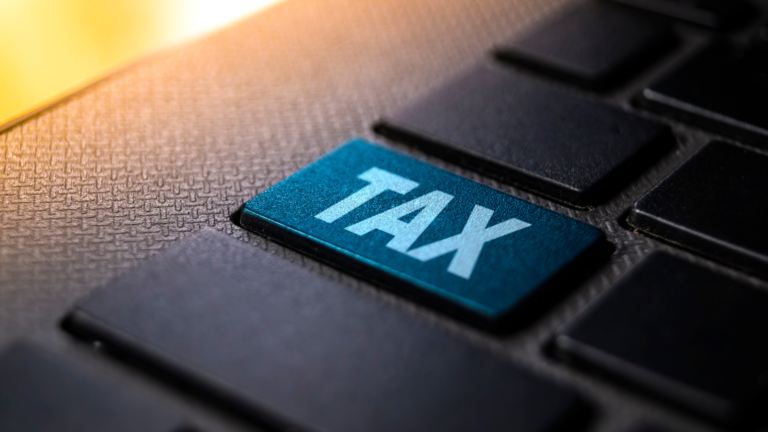Indonesia’s Coretax System has entered a more stable phase, according to Deputy Finance Minister Anggito Abimanyu. After months of technical issues and public criticism, the system that supports Indonesia’s tax administration now operates with significantly fewer disruptions. Anggito defended the system in a recent statement, calling it a major innovation and rejecting claims that it caused a sharp drop in tax revenue.
“Alhamdulillah March has brought no more significant complaints,” said Anggito during a virtual presentation at the Business Association Feedback and Socialization event on April 7, 2025.
Early Implementation Faced Technical Hurdles
When Indonesia’s Coretax System launched in January 2025, it encountered various issues that slowed down the country’s tax operations. One major problem involved uploading tax invoices. Taxpayers and businesses reported delays and errors when attempting to input data into the new platform.
At its worst, the latency for issuing a tax invoice reached up to 10 seconds. Additionally, login issues and problems with filing tax returns further complicated the transition to the new system. Officials acknowledged these concerns and began addressing them through a series of updates and fixes.
Indonesia’s Coretax System Shows Performance Gains
Despite a rocky start, Indonesia’s Coretax System has improved significantly. The Directorate General of Taxes reported that between January and March 16, 2025, the system processed over 136.9 million tax invoices. According to Director of Counseling, Services, and Public Relations Dwi Astuti, the latency for issuing invoices has dropped to just 1.46 seconds.
“The tax invoices consist of 61,239,243 invoices for January, 64,035,902 for February, and 11,694,131 for March,” Dwi stated in an official release dated March 19, 2025.
Other improvements include faster login times and quicker generation of withholding tax receipts and annual tax return submissions. By early March, login latency had dropped from 4.1 seconds in February to just 0.012 seconds.
Tax Revenue Drop Sparks Concern
Despite recent improvements, Indonesia’s tax revenue saw a significant decline early in 2025. The Finance Ministry reported a total tax revenue of IDR 187.8 trillion (approximately USD 11.88 billion) as of February, marking a 30.2% decrease year-on-year. In February 2024, tax revenue had reached IDR 269.02 trillion (around USD 17.01 billion).
Experts believe the initial issues with Coretax contributed heavily to the drop. Since all tax payment processes must now go through Coretax, system instability delayed tax compliance across key categories. These include income tax (PPh), value-added tax (VAT), and land and building tax (PBB) for the mining sector.
“That’s why, practically speaking, tax payments could not be made in January 2025 when Coretax was still problematic,” said Prianto Budi Saptono, Chairman of the Supervisory Board at the Indonesian Tax Consultants Association.
Mixed Views on Indonesia’s Coretax System
While the Finance Ministry and some officials remain optimistic, analysts are more cautious. Fajry Akbar, Research Manager at the Center for Indonesia Taxation Analysis (CITA), pointed out that Coretax’s early flaws, the application of an average effective rate (TER), and increased VAT refunds all played a role in the revenue contraction.
“This improvement is happening because I see the main impact as operational risk, as well as the TER correction and VAT refunds, which will gradually decrease in the coming months,” said Fajry on March 13, 2025 as reported by Bisnis.com.
Still, he emphasized that economic conditions will ultimately determine whether the government can meet its 2025 tax revenue target of IDR 2,189.3 trillion (roughly USD 138.47 billion). “If macro conditions remain in line with the state budget assumptions—such as 5.2% economic growth—and the system stays in competent hands, I still believe in the health of our public finances,” he added.
Digital Tax Reform Remains a Priority
Indonesia’s Coretax System is part of a broader digital tax reform strategy aimed at increasing transparency and efficiency. Officials believe that once fully optimized, Coretax will level the playing field between taxpayers and tax authorities.
“The appeal and audit process will become more credible, and inspections more predictable,” said Anggito. He remains confident that the system will play a key role in strengthening Indonesia’s tax infrastructure moving forward.
As Coretax stabilizes, both the government and taxpayers hope it will deliver on its promise of modern, reliable, and fair tax administration.
Source: ekonomi.bisnis.com
Image: M.Gunsyah/Shutterstock

















